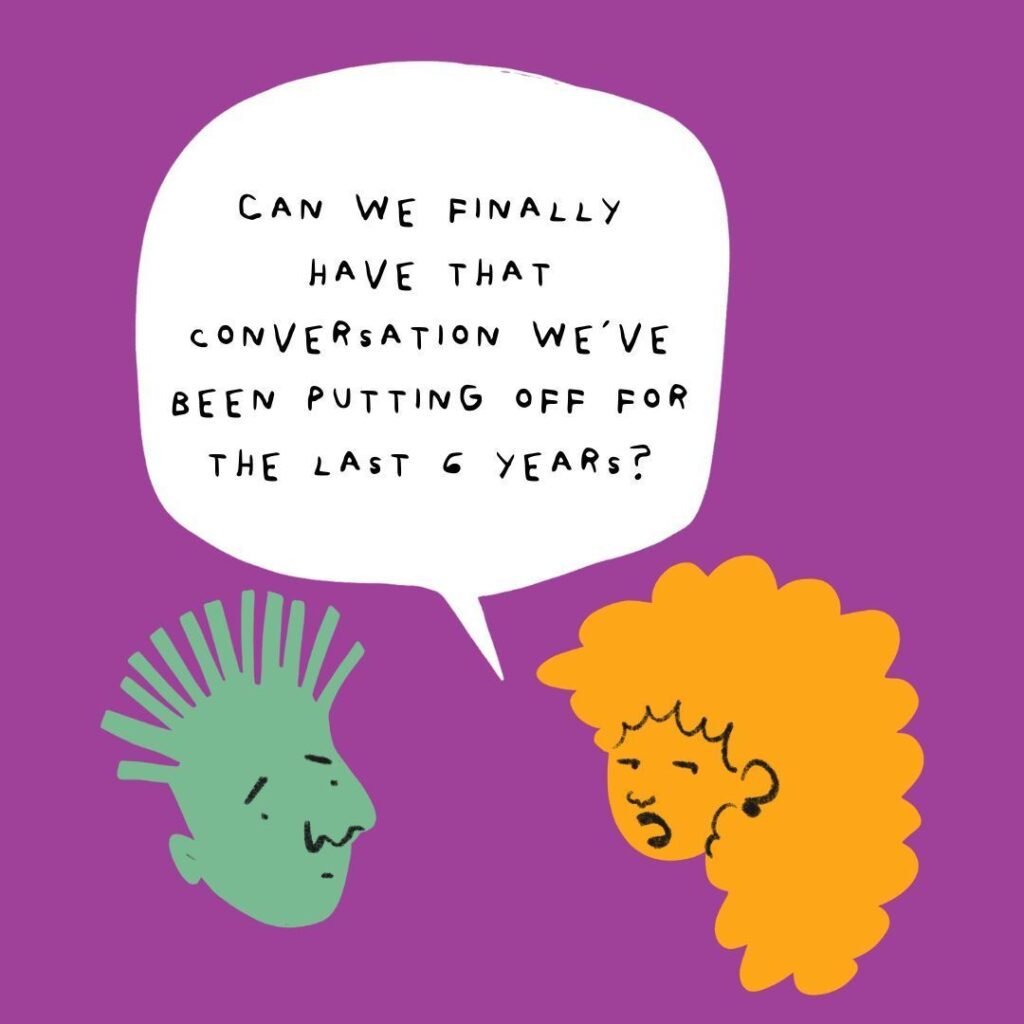
I’ve been thinking a lot about difficult conversations lately.
And how they’re an integral part of our personal and professional lives, even though initiating them can be a daunting task.
But they are necessary because they serve as a bridge to resolution, understanding, and growth.
While they might seem uncomfortable, they prevent the slow build-up of resentment, which can be toxic to relationships.
From personal experience, I’m learning that a little discomfort now is far better than harboring long-term bitterness. But before you dive into a difficult conversation, consider these questions:
1. What do you want them to learn?
Think about the key message you want to convey. Be clear about the information or perspective you want to share.
2. How do you want them to feel?
Consider the emotional aspect of the conversation. Do you want them to feel encouraged, respected, or perhaps challenged in their viewpoint? Understanding the desired emotional outcome can guide your approach.
3. What do you want to happen after the conversation is over?
Envision the aftermath. Do you aim for a resolution, a compromise, or simply a better understanding between parties? Knowing the desired outcome can help you navigate the conversation more effectively.
Don’t shy away from those uncomfortable talks; they might just be the catalyst for positive change.



